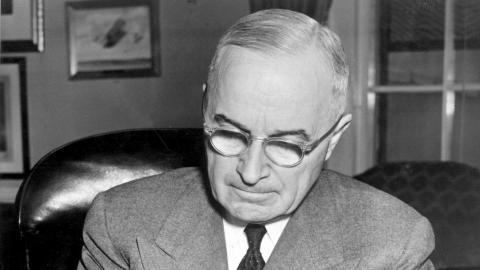In 2019, Henry Kissinger warned that the U.S. and China had entered the “foothills of a cold war,” and the Sino-American relationship has only worsened since. The prospect of a new cold war has induced some historians to reexamine the old one. Nick Bunker’s “In the Shadow of Fear: America and the World in 1950” is one such reexamination.
Mr. Bunker, a British historian and former reporter for the Financial Times, argues that “the real moment of decisive change” occurred not in 1945 but in the “ten months between Labor Day 1949 and the beginning of the Korean War.” That fall, Harry Truman intended to use his Labor Day speech to build momentum behind his ambitious Fair Deal agenda. But over the ensuing 10 months, Truman’s attempt to expand on FDR’s domestic legacy fell apart, and the Democratic coalition that had dominated American politics for two decades began to break up as well. Most perplexingly to Mr. Bunker, “American politics descended into strife at a moment when in so many ways the nation had little to fear.”















